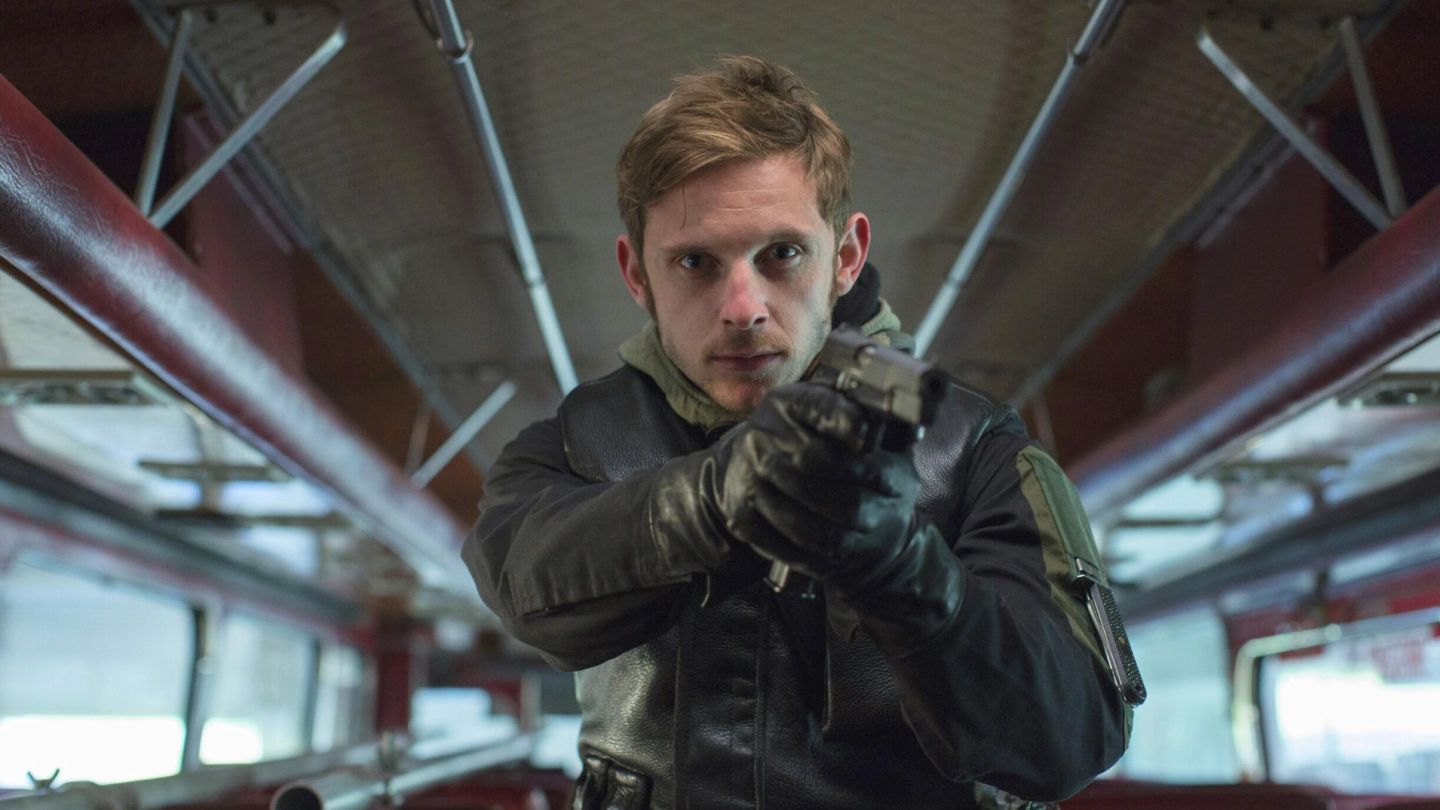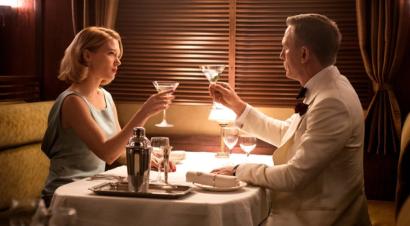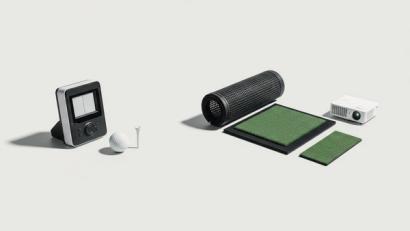

Jamie Bell interview: “I don’t do well under pressure”
The northern actor's new film, 6 Days, tells the story of the Iranian Embassy siege
- Words: Jonathan Wells
17 years after he pirouetted his way into the limelight, Jamie Bell is one of the few young actors to transition smoothly into adulthood. In an age of social media, where half of young success stories end in rehab and the other half in obscurity, the actor has achieved the unlikely simply by staying on the straight and narrow.
Although his life is now firmly based in America – the northerner has a television series on AMC and, last month, got married to House of Cards star Kate Mara – Bell’s new film sees a return to Britain. 6 Days tells the story of the 1980 Iranian Embassy siege in London, and we caught up with Bell to talk terrorism, training and the future of film and television.
Is there a certain amount of pressure on you when you make a film depicting real events?
Yeah, I think so. It’s definitely an event, a moment, that is widely understood and widely known. It was very much covered at the time as well, so I think people have an expectation about the way it’s going to be presented. But then, on the same level, there’s such a story underneath, a human story that people don’t know. So it was nice to get that opportunity to tell that side of that story.
To ‘go inside’ that building was a huge privilege as an actor. People were glued to their televisions for days watching the outside of that building, and it kind of got seared into people’s memories, but we’ve never actually been inside that building. We have no clue what went on inside, how the SAS managed to do what they did.
Do you it’s important to show how long Britain has stood up to terrorism, especially given the recent attacks?
I think it was definitely a milestone in British terrorism, for the sheer availability of it. This was an ongoing event being reported on night and day in the capital city of England. It was literally happening up the road, and nobody had ever seen that before. To have a military presence, a counter terrorism force deployed on the streets of London, was a huge deal.
There were men abseiling down the building off the roof. No-one had ever seen anything like it ever before. But it was just a bunch of people storming into a building with guns, which then led to another bunch of people with guns storming the same building. So, I’m not entirely sure where the good ends and the bad starts. I hope it’ll further the conversation about the way we deal with these situations.
What was the training like for such an intensive role?
It wasn’t too intense. I did five days of full on training. They’d rig up these rooms, like the floor of a building. And we’d be fully-armed and toting guns loaded with full magazines of blank ammunition. And we’d go into these rooms as team and clear the rooms. We learned what it was like to be shot at.
It’s of course nowhere near the training the real guys go through, but it was to get a taste of the discipline and requirement. These guys were taught to overwhelm, aggressively and quickly. So I suppose this one would be up there with my most intense, because you are all with these guys and you can’t stop. Something could easily have gone wrong. During lunch we were all doing pull-ups or push-ups. I would be exhausted when I got home.
You’ve worked extensively with motion-capture, starring in Tintin and Fantastic Four. Do you prefer getting back onto a set, and working with tactile props and people?
It’s certainly much more informative to have the bits and pieces on and around you. You’re inventing less because you’re reliant on the things at your disposal. But the approach is still pretty much the same, which is portraying the character well.
What was it like playing a real person. Is there a certain weight of responsibility around portraying them correctly?
Rusty Firmin, the SAS squadron leader who I play, was there all the time. He was there for all of the training, and he’d tell us to be more aggressive or how to hold the gun. He was very specific, but I didn’t mind his specificity. The reality of portraying someone’s life is that it isn’t really that daunting. Because you just do what they did. You eat pizza. You watch the snooker.
What I liked about this movie was that there wasn’t much character development or plot – it was just telling an event in chronological order. What was strange was that I didn’t really work with any of the other stars. I saw Mark Strong in the make-up trailer once. It’s hard, because you’re ultimately as an actor a piece of the puzzle. You have to do your bit. So it is strange, because on screen you can have a crazy relationship with someone in a film – like over the phone or in your head – but you never meet them. I don’t know how many days Tom Hanks and Meg Ryan spent together in Sleepless in Seattle, but they’re barely in the film together.
You’ve successfully moved from child actor to Hollywood star. Was there a plan?
No, there was no plan. I had really good people around me, generally pushing me in the direction of longevity versus going too big too quickly. It was more a case of going to work with good filmmakers, even if that meant taking smaller roles. Because that’s better than going for bad roles, or movies that don’t work.
I didn’t feel like I’d set the bar too high. I’d hate to do things with a sense of pressure. I mean, there’s unavoidably a sense of expectation people put on you when you make things, but I feel like I’ve done quite well to avoid that. I don’t think I do well under pressure.
You’ve previously spoken about how the medium of film and television is changing. Where do you see the media landscape in five years’ time?
It’s tricky, because release strategies and the way people consume it is obviously wildly different. And that’s changed even within the past five years. Today we have Netflix and Amazon movies, different streaming rights, tentpole movies suffering at the box office, and big name stars and filmmakers moving to different platforms.
Television has sparked a conversation now. The way we receive it now has changed us as people. We’d rather spend 10 hours with one show than an hour and a half in the cinema. I think that says something about us. But it’ll change again, and it’ll be different. Just, at the moment, the whole anticipation and ‘did you see’ thing is something you no longer get with cinema.


